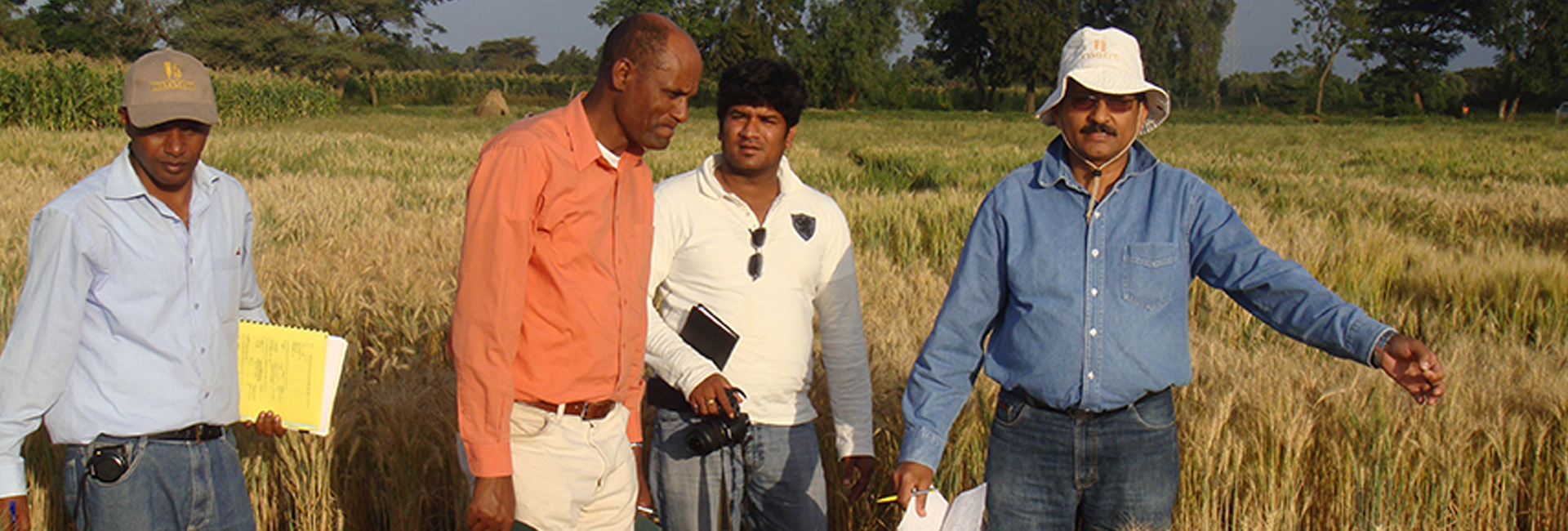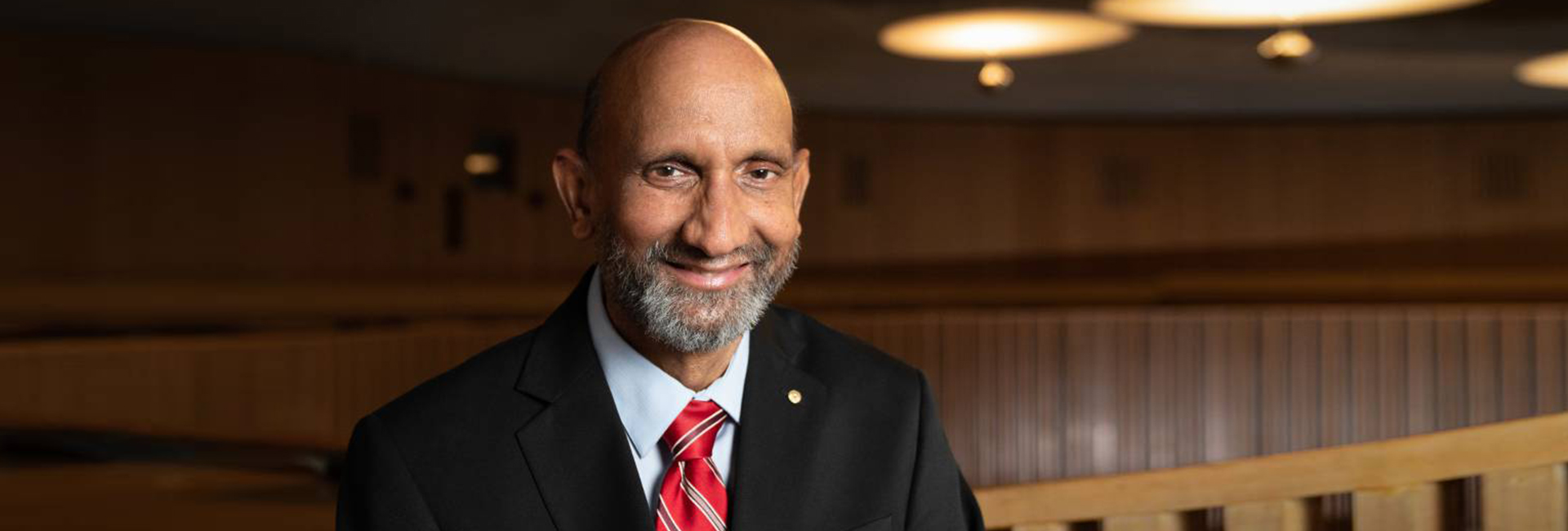(February 12, 2024) As a young boy, growing up in Zambia, Dr. Kiran Patel and his father helped their neighbour, a widow, negotiate down her debt. “My father used to contact her creditors, proposing that they either accept 30 cents on the dollar through the family’s bankruptcy or choose to forgive the debt, allowing the family to persevere. The creditors chose to pardon the widow’s debts, enabling her children to grow up, attend school, and live contentedly thereafter,” the philanthropist said in an interview.

Observing his father negotiate the debts of their neighbour shaped Dr. Patel’s abilities as a negotiator in later years. These skills proved instrumental as he successfully transformed numerous struggling healthcare companies, turning them from multimillion-dollar debt burdens into highly profitable ventures. “Ethically, if you do the business right and you do the right things for the right reasons, the results will come. I started my life with nothing and now, I am somewhere at heights most people will never reach, but it is not because I was driven to just make money,” said Dr. Kiran, who is a Pravasi Bhartiya Samman-winning cardiologist.

Dr. Kiran Patel receiving the Pravasi Bharatiya Samman from former President Kovind
One of Florida’s foremost entrepreneurs and cardiologist, Dr. Patel has several medical institutes named after him across the globe and has made significant donations to several organisations, including the University of South Florida, Habitat for Humanity, Nova Southeastern University, and Florida Hospital Carrollwood, and has invested in several firms, on track to create 11 unicorns. “I think very few people are blessed the way we are. Not many people get this opportunity. Either because they may not have the means or if they have means, they may not have that desire, vision, or passion to do it. I have been fortunate enough. I can’t thank God enough for giving me such a great opportunity to touch so many lives. It has been my passion and vision to impact the world positively through education and health. It is a blessing to be able to contribute to my “Karmabhoomi” (United States), “Janmabhoomi” (Zambia), and “Mathrubhoomi” (India),” the philanthropist said.
Living the American dream
Born in Kabwe, now located in Zambia, was raised by Gujarati parents. “My father always expected excellence from his children, and despite living in a small home without life’s luxuries, he never felt poor or disadvantaged. The focus always was education. I remember my dad would say, ‘If you are second, don’t even bother to come home,” he shared. As a teenager, he ventured to India to pursue a medical education in Ahmadabad. It was during this time that he crossed paths with Pallavi, his future wife and fellow medical student. Following their graduation and marriage in 1972, the couple returned to Zambia. “She has been my rock,” the philanthropist had said about his wife.
In 1976, they embarked on a journey to the United States for postgraduate training in internal medicine at the Jersey City Medical Center, affiliated with the New Jersey College of Medicine and Dentistry. Settling in Tampa in 1980, they established medical practices. Two years later, the entrepreneurial duo initiated a physicians’ practice ownership and management company, marking the commencement of their successful ventures. “From earning $3,000 a month in my first practice to $100 million, I can say I have achieved a true American dream,” the philanthropist said during a speech.

Rapidly growing, their enterprise extended to 14 practices encompassing family medicine, internal medicine, pediatrics, and cardiology. By 1992, the Global Indian assumed the role of Chairman of the Board at Well Care HMO, INC., guiding it to become the fifth-largest Medicaid HMO in the United States. In 1999, he secured a 55 percent ownership stake in WellCare Management Group Inc., headquartered in Kingston, NY. This company managed two HMOs in Connecticut and New York. “In 2007, I initiated the establishment of a new insurance holding company, America’s 1st Choice Holdings of Florida. Subsequently, I acquired two Tampa Bay-based Medicare Advantage Health Plans, namely Freedom Health and Optimum Health. Through dedicated efforts, I expanded these companies to encompass over 115,000 members and generated revenue exceeding $1 billion. Eventually, in April 2019, I made the strategic decision to sell these thriving enterprises to Anthem,” the philanthropist said.
Giving back to the community
Over the last fifteen years, Kiran and Pallavi Patel have contributed hundreds of millions to diverse causes globally, with a primary focus on the United States, India, and Zambia. Remarkably, in just the past year and a half, their philanthropic pledges exceeded a quarter of a billion dollars. In September 2017, the Drs. Kiran Patel and Pallavi Patel Family Foundation made a historic commitment of $200 million to Nova Southeastern University in Florida, marking the most substantial donation by Indian Americans to a U.S. institution. Additionally, on December 13, the ground was officially broken for a $20 million charter school in Temple Terrace, FL, entirely financed by Patel.

Besides education and healthcare, the philanthropist’s foundation is also promoting art and culture. “I think, to be a complete human being, art and culture are very important aspects. You can add spirituality to it, but if you think about it, art and culture are universal. Anybody can appreciate art and music regardless of their ethnicity, religion, or cultural background. It is a necessity that we have something like that,” he shared.
But not just USA, Dr. Kiran was working on projects in India as well. “Post-Gujarat earthquake, I was instrumental in rebuilding four hospitals. In my village, we have two hospitals, a pediatric and an adult. We have a school that is going all the way up to 12th grade, in the English medium and the Gujarati medium,” shared the philanthropist, adding, “During that earthquake, we also rebuilt a village and we had an anathashram because there were kids who lost their parents, either one or both, and we took care of them. There was another school that was for the mentally handicapped. Now we are expanding to 10 other hospitals.”
So what’s next for this philanthropist? “I think rest is what I’m going to do but I doubt if I can pause from what I’m doing. I have dreams of building a university in India, and in Zambia,” he shared, “So basically going forward, I want to spend a lot of time in philanthropy and primarily in health and education. Because transforming a society or an individual you need education along with health.”




